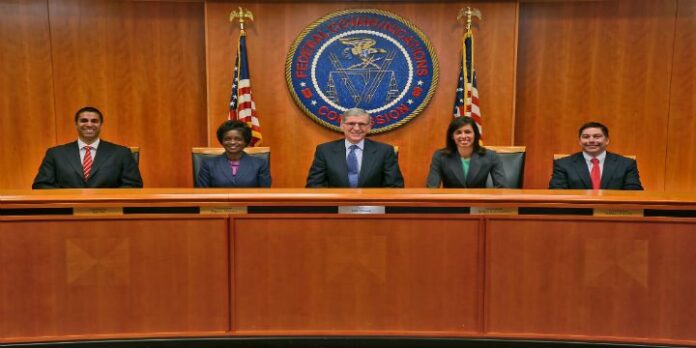Duplex gap concerns force FCC to postpone today’s vote on 600 MHz incentive auction rules
The Federal Communications Commission has dropped plans to vote today on rules for the planned 600 MHz incentive auction.
The vote was set to be part of an open meeting, and was to include details on final procedures for setting the initial spectrum clearing target, qualifying to bid, and bidding in the reverse and forward auctions. The FCC has not rescheduled the vote, though said it remains on track to begin the auction during the first quarter of next year.
The delay is reported to have been connected to concerns expressed by the FCC’s two Republican commissioners who cited recent information concerning the use of the “duplex gap” in some markets. One report noted concerns were also expressed by Democratic Commissioner Jessica Rosenworcel.
The spectrum channels in between uplink and downlink bands, also known as guard bands, are typically lightly used in order to not introduce potential interference with nearby licensed bands.
A number of entities have recently filed documents with the FCC questioning a proposal to dedicate the spectrum in between uplink and downlink channels set to be part of the auction for Wi-Fi and other unlicensed uses, including for licensed broadcast news microphones. AT&T last year also expressed concerns regarding use of unlicensed devices in those bands.
FCC Chairman Tom Wheeler last month said he circulated a draft Order on Reconsideration connected to the auction that maintained the previously stated 30 megahertz of spectrum reserved for those entities with sparse sub-1 GHz spectrum holdings. The decision was seen as a blow to the efforts of T-Mobile US and some trade groups that were requesting that at least 40 megahertz of spectrum be placed outside of the bidding reach of AT&T and Verizon Wireless.
The set aside rule, which was initially put forth last year in the initial Notice of Proposed Rulemaking, is expected to have the greatest impact on the mobile industry’s two largest players, although the actual impact is up for debate.
Bored? Why not follow me on Twitter

